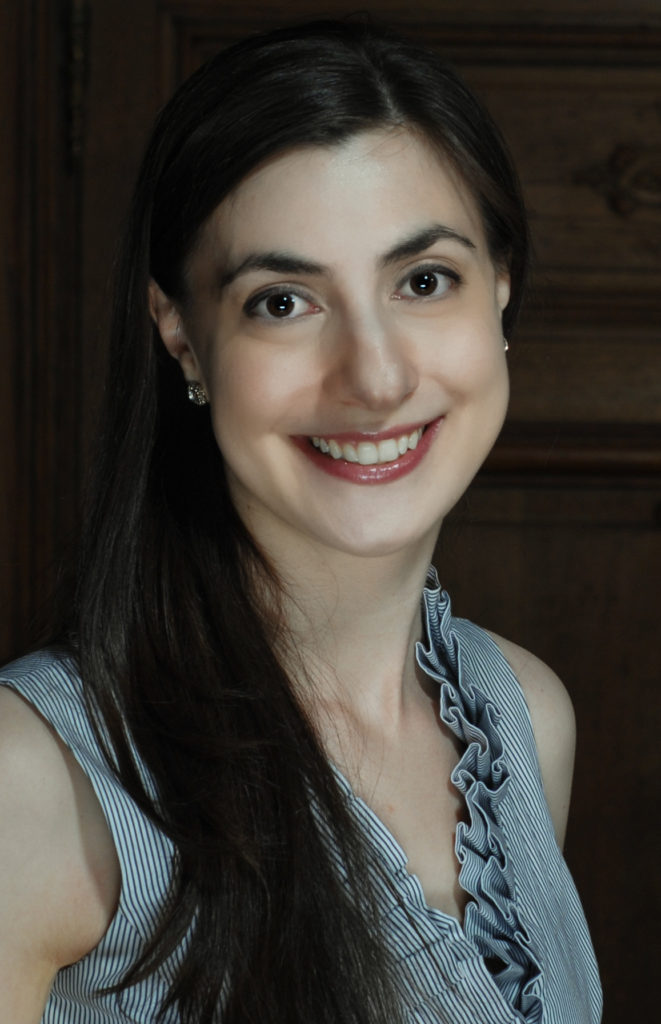Meet Alum Genevra Le Voci ’09, Senior Manager of Corporate and Foundation Relations at The Frick Collection
Name: Genevra Le Voci
Class Year: 2009
Title: Senior Manager of Corporate and Foundation Relations
Organization Name: The Frick Collection
In one sentence, what does your job entail?
My position at the Frick entails raising funds from foundation and corporate donors for special exhibitions, education programs, and the library in addition to growing the museum’s corporate membership program.
What were you involved in when you were on campus?
As a Holy Cross student I was involved with SPUD as a volunteer at Plumley Village and a member of Gesso, the student art club. At Gesso, we curated exhibitions of student art in the basement of the Hogan Campus Center. I co-chaired Gesso during my senior year. It was a lot of fun and a great way for me, an Art History major, to get to know my Studio Art peers better and to display their work. I also had two work study jobs (after I I worked in Kimball during freshman year, of course). I worked at the Archives and Special Collections at Dinand Library and at the Iris and B. Gerald Cantor Art Gallery. These were both wonderful experiences–I expressed my interest in a career in museum work to Mark Savolis at the Archives and Roger Hankins, Director at the Cantor Art Gallery. They were both great supervisors and gave me the opportunity to work on projects that gave me a sense of what it might be like to work at a museum. At the Archives I researched and organized small exhibitions from the Archives collections that were displayed in cases in the Reading Room in Dinand (I worked on one of these with a fellow Art History major, which was especially fun). At the Cantor Gallery, I got the chance to assist in art handling when we installed and de-installed exhibitions.
What was your major and how did it affect your career decisions?
I enrolled in Holy Cross as a Classics major but I also had a strong interest in Art History (I had a phenomenal art history teacher in high school) and I took Art History classes throughout my freshman year. I didn’t officially declare a double major in Classics and Art History until my sophomore year. A turning point was Medieval Art, a class I took with Professor Virginia Raguin the first semester of my sophomore year. At that point, I knew I wanted to so something in the visual arts. Professor Raguin was an amazing mentor–she guided my through countless internship applications (and was always a willing reference) and pushed me both academically and in my career expectations. Under her tutelage, I designed my own tour of the Worcester Art Museum on a topic in medieval art, something I had never done. She and Professor David Karmon (whose classes sparked my interest in Renaissance art) also advised my senior thesis.
At Holy Cross, I was able to delve into Art History and realize what I loved so much about it–how it was a way for understanding human experience and history visually. My Art History major made clear something I had only had an inkling of when I started college: that I wanted to work in a museum, or like institution, dedicated to bringing this experience–the discovery of visual art and culture–to the public.
What are one or two skills that you developed at Holy Cross that you use in your work?
Writing is a major component of my job. I am always writing proposals, grant applications, reports, and letters. At Holy Cross, I developed and honed my writing skills (because of Professor Ellen Perry in the Classics Department, to this day I avoid beginning sentences with participles). Most of the writing I do now is different from academic writing. However, I think if you are confident in writing academically, which to me is the most challenging, other types of writing may come more easily.
What advice do you have for students on campus today?
My advice is to explore what interests and challenges you. Take classes on subjects and topics that make you ask questions and think deeply. Go to office hours and talk with your professors. Do activities that you find rewarding. Evaluate these experiences and think “Is there something here I’d like to consider for a job and/or career?” Process this information and take advantage of the resources available on campus (the Center for Career Development and the Writer’s Workshop, to name a few).



